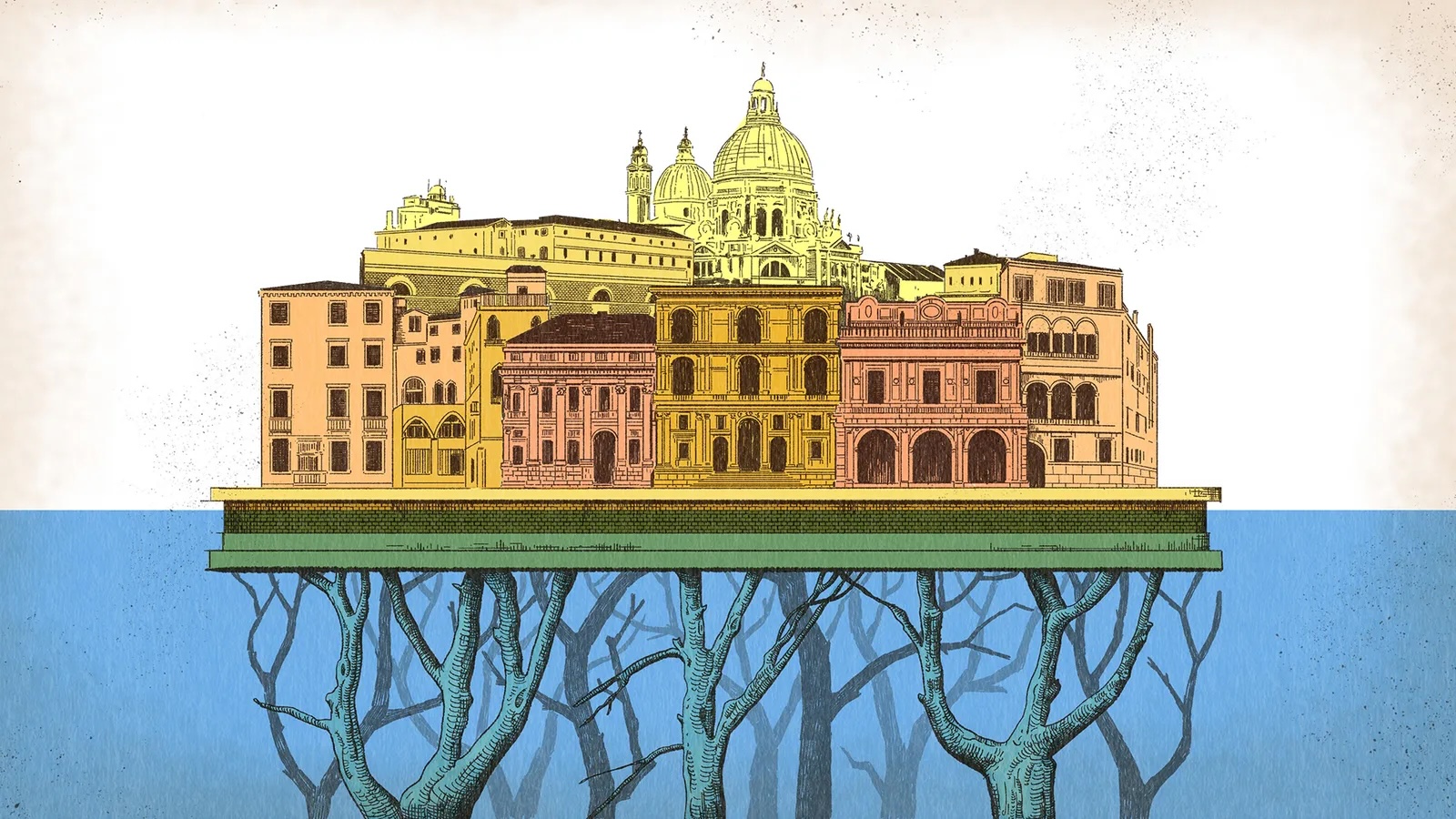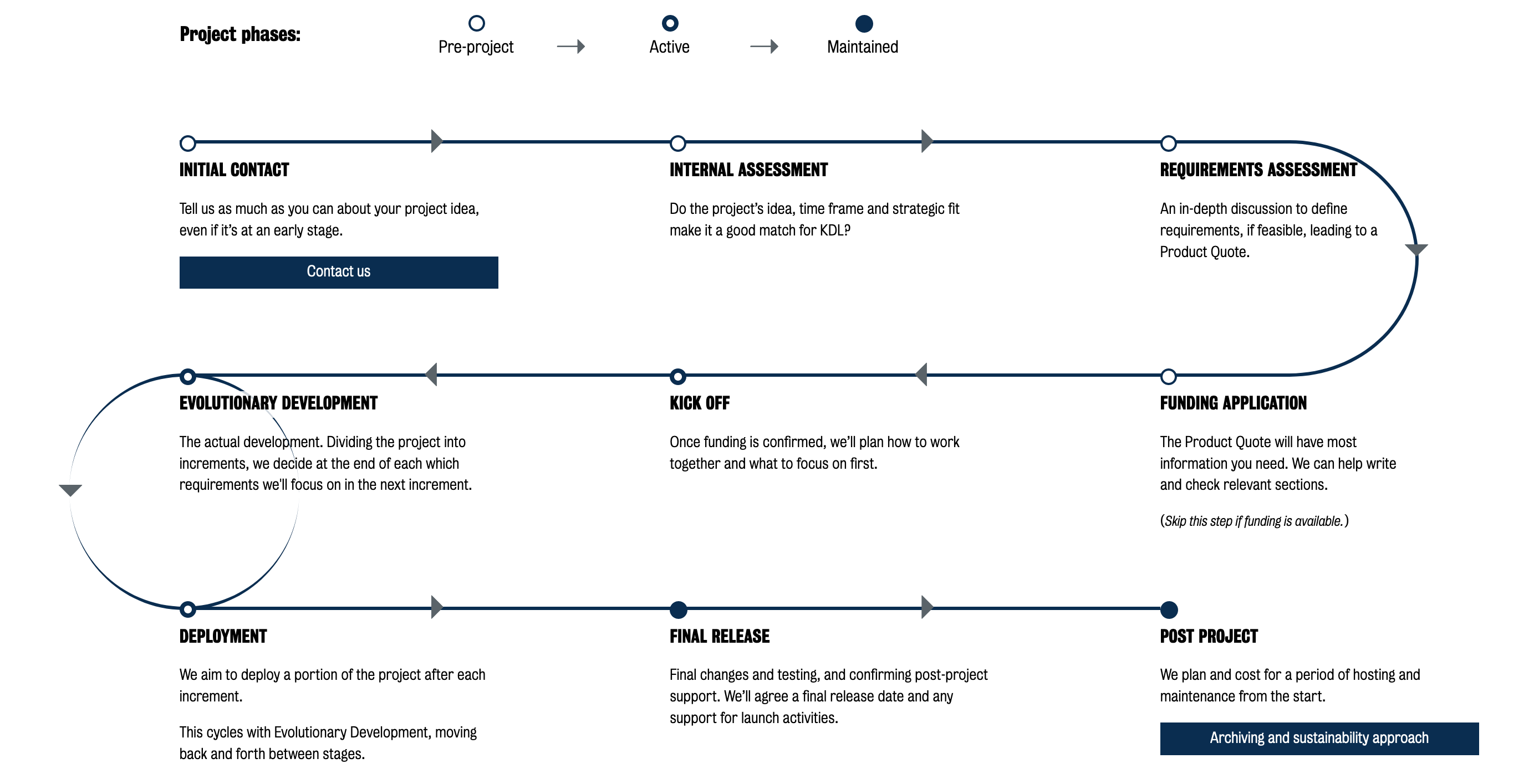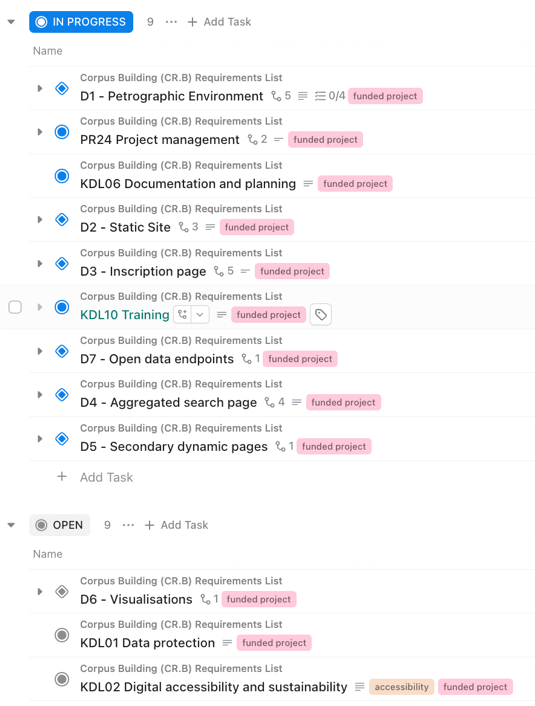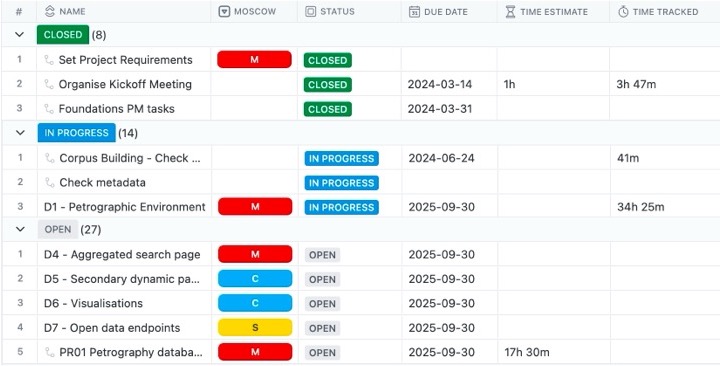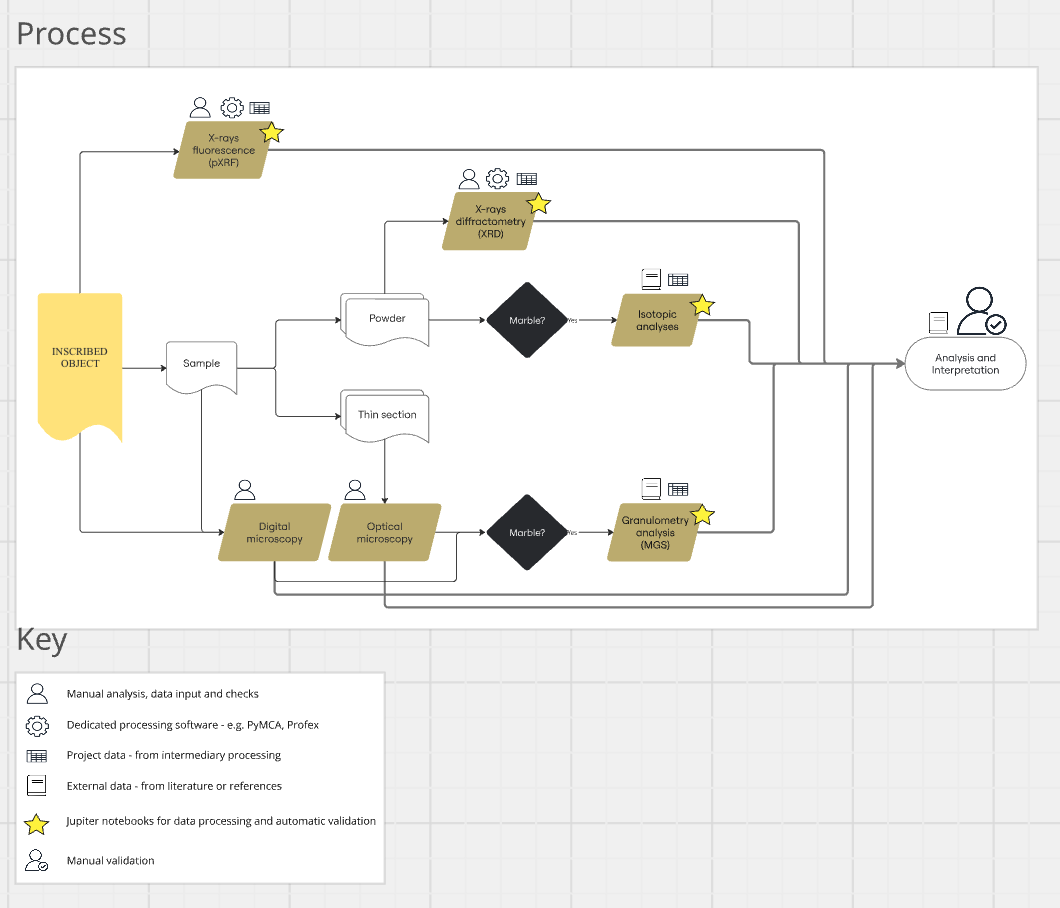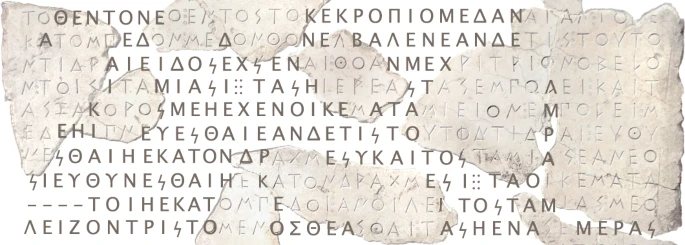Starting from the end and going in circles?
What does it mean to sustain a digital research infrastructure?
Learnings from King's Digital Lab
Arianna Ciula contributions from past and present KDL team
Outline
Status or Starting from the End
King's Digital Lab mission, history & set up
Archining & Sustainability programme
What is a Digital Research Infrastructure in our context?
Collaboration & Processes or Going in Circles
Assessment of Digital Outputs
Research Themes
Conclusions & questions
Brief history
Over 35 years of activity, against a background of rapid innovation and change in Humanities Computing and Digital Humanities
Centre for Computing in the Humanities (1991) - Prof. Harold Short - and Centre for eResearch - Prof. Sheial Anderson
King's Digital Lab
Team of 13 permanent staff + Research Affiliates/Visiting fellows delivering research services and/or (co-)leading research in collaboration with researchers and research organisations
- roles: Lab & Project Managers, Analysts, Developers, Designers, Systems Administrator
- under-written internally with 50% annual cost recovery model
Starting from the End
Inherited over 100 completed projects with no funding
(explain sla)
selection of project types/examples relevant for the topics of the conference
DECIDE whether to add VENN DIAGRAMM
Epigraphy project example
TEI/XML EpiDoc schema regularly improved by the community
https://epidoc.stoa.org/
Transformative for the field edition and publication framework EFES for ancient / complex texts:
https://github.com/EpiDoc/EFES
https://wiki.digitalclassicist.org/EpiDoc_Front-End_Services
enables researchers to work at speed, alone, and also to share work with others before publication
above notes summarised from https://zenodo.org/records/15083522
What is a Digital Research Infrastructure in our context?
DRI in the Arts & Humanities, in a UK University and with a specific business model - how to collaborate with us and how do we collaborate?
Emmanuel Lafont / BBC
focus on processes and expertise (not so much on methods and resources)
image from https://www.bbc.co.uk/future/article/20250324-the-ancient-forest-that-supports-venice
watch the Crazy engineering of Venice at https://www.youtube.com/watch?v=77omYd0JOeA
Collaboration guidance and process
Questionnaire and FAQ
if you need to collaborate there is some guidance
no matter how big or small projects
Inscription example (public )
RSE contribution via petrography notebooks
ca. 6,000 ancient inscriptions of which ca. 600 subjected to petrographic non-destructive analysis resulting in at least 2,500 pXRF spectra and ca. 200 to micro-destructive analysis (XRD - each with 1-10 mineral phases)
Solution architecture of Python Colab and Jupiter notebooks to provide some degree of automation and verification of a multi-analytical approach
Assessment of Digital Outputs
Development & Innovation
Interdisciplinary collaboration
Assael et al. 2022
Note re AI/ML: importance for historians and other humanities researchers to engage in the use of AI / ML (including specific pipelines like the one tested for Ithaca)
Example from Ithaca https://github.com/google-deepmind/ithaca and in Nature https://www.nature.com/articles/s41586-022-04448-z
fig 1 Assael, Y., Sommerschield, T., Shillingford, B. et al. Restoring and attributing ancient texts using deep neural networks. Nature 603, 280–283 (2022). https://doi.org/10.1038/s41586-022-04448-z
Reflections
Careeer pipelines
Labour conditions
Research cultures
Communities
it takes people and processes to sustain a research infrastructure
but also an adequate research culture
mention recent paper about reframing failure
re point 1: data, systems AND processes; design and analysis - mention carreer pathways: "Mismatch between increasingly digital lifecycle of projects and the career pipelines that would provide the expertise to design, develop and maintain those lifecycles. This failure bears a question and a call for action addressed mainly to those who lead teaching and training programmes: are we working towards creating the profiles of the digital RTPs we need? DH could contribute quite substantially to shaping holistic and diverse profiles by giving weight not only to data and systems but to process-oriented teaching and training and by including design and analysis skills in education strategies."
re point 2: "Precarity of labour associated with technical roles. Here the overtly open critique is addressed to senior management of the higher education sector (a sector I am conscious I represent) as well as of comparable independent research organisations operating in the arts, humanities and cultural heritage research domains: can digital RTPs in these domains become more mainstream than a few laboratories and ad hoc figures with no defined roles and career progression? While we cannot compete with industry remunerations, benefits including inclusive and stimulating research environments, career paths and opportunities ought to be defined and offered systematically across institutions."
re point 3: mention conservative / discriminatory academic cultures, promotion systems, evaluation frameworks, funding streams, attitues, behaviours - "Outdated, if not discriminatory, research cultures that are unable or unwilling to value the integral role technical objects play in knowledge production and therefore to value complementary digital research outputs including software (Hidden REF n.d.; Tasovac et al. 2023; Ciula, Esposito and Wijaya 2024) and those experts that have an intimate knowledge of how these objects work or break (Smithies et al. 2023). This borderline discriminatory research culture goes beyond DH and is reflected in our academic promotions systems and evaluation frameworks but also in funding streams and, more subtly, yet with substantial implications, in attitudes, habits and behaviours."
re point 4: "Individualist research focus which discourages creative, responsible and collaborative re-use and reduces collective impact to unidirectional dissemination activities. Linked to the point above, this relates to the difficulty of reforming research and education environments to work with (and not only for) communities. Experts cognisant of the importance of participatory and imaginative design methods are needed to achieve this reform and ultimately contribute to living well with technology collectively."
ADD image?
